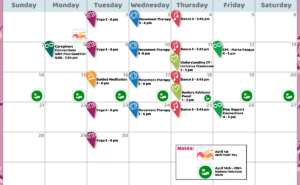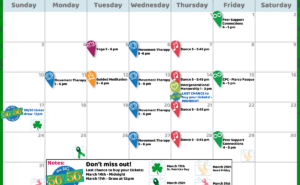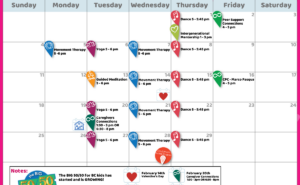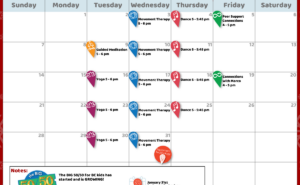On September 15, Dr. Kishore Mulpuri, Orthopedic Surgeon and Epidemiologist at BC Children’s Hospital, joined the Cerebral Palsy Association of BC at our Annual General Meeting for a presentation on aging with a disability. This was the fourth installment in our Ageing with a Disability series, which also included a presentation at the Youth Without Limits support group and at our Community Connections events in New Westminster and North Vancouver. In his talk, Dr. Mulpuri discussed services and preventative measures that are offered to children with cerebral palsy (CP), what adults with CP need to focus on in order to ease the aging process, the importance of being active, the need for transition programs and a few tips that adults with CP may benefit from.
Serving children and youth
BC Children’s Hospital has a very accommodating and supportive orthopedic clinic serving children and youth with CP. According to Dr. Mulpuri, having good supportive services and early intervention is important in order to ease the aging process. Children with CP have underdeveloped and tight muscles which grow a lot slower than their bones. Quite often, this causes deformities and a child’s muscles become permanently short. These permanently shortened muscles are known as contractures. If contractures are dealt with when children are still developing, they are likely to have less impact when the child gets older. It is essential to assist children’s muscles to keep pace with bone growth through stretching and/or surgery.
Due to the various issues associated with CP, hip dislocation is common among children and adults, particularly those who use a wheelchair the majority of the time. According to Dr. Mulpuri, there is a 90 percent chance of hip dislocation if you are continuously in a wheelchair. Monitoring a child’s development through hip surveillance is vital to preventing or responding quickly to a dislocated hip. BC is the first province to have a hip surveillance program. According to Child Health BC “the Hip Surveillance Program for Children with Cerebral Palsy aims to ensure that children at risk for hip displacement receive appropriate screening to allow for early and appropriate management.” It is encouraged that children with CP are in an ongoing hip surveillance program until age 18 or 19. Once children have reached the age of maturity, general hip x-rays are encouraged every so often.
Healthy habits
Taking care of oneself and staying active is also essential for adults with CP. Dr. Mulpuri stressed the importance of having healthy habits, eating well, and getting exercise. Exercise is significant since increased muscle strength helps to maintain bone strength. For those who use wheelchairs, it is necessary to keep the upper extremities strong. However, keeping active can be rather challenging for adults with CP. Many gyms are lacking accessible equipment and programs that cater to people with CP and other disabilities. Those with disabilities may need to research accessible options or consider other ways to stay fit.
Although keeping active is important, balance is also key. There is ongoing debate about how much children and adults should walk and how much use a wheelchair. Dr. Mulpuri stressed the importance of having balancing the two, in order to maintain mobility without wearing down energy. This is especially the case when it comes to adolescents. Adolescents with CP should be encouraged to be as independent as possible and to keep upright, without being pushed too hard because eventually they aren’t going to want to do it. Dr. Mulpuri encouraged listeners to put themselves in the shoes of someone with CP. “If you put your knees in that degree of bent position and you walk you will get fatigued. It is important to identify the balance between wanting them to walk versus their physical ability. Are they going to enjoy themselves?” When it comes to adults who are finding themselves and their bodies changing or are in pain or fatiguing more easily, Dr. Mulpuri encouraged using a wheelchair for longer distances. “I don’t think one should feel bad about using a wheelchair. When you get that pain and you want to stay mobile for a long time and enjoy what you do, I don’t think one should feel bad about that.”
Services and support
Dr. Mulpuri also touched on what adults with CP can do if and when they are in need of support or services. He specifically talked about the need to work on building good transition care. “There are 2,800 children with CP or CP-like conditions in this province. These children are going to get older and fall off the radar, so to speak.” Until a good transition care plan is in place, Dr. Mulpuri encourages adults to get in contact with GF Strong.
Based on Mulpuri’s presentation and our four-part series on aging with cerebral palsy, we know that people with CP are getting older and living longer. While the increase in life expectancy is a positive thing, services and support for adults with CP are still lacking and it is crucial that adults with CP remain as active and as mobile as possible. There is a lot of work that needs to be done to ensure that this ever-growing population’s needs are being met. However, there are still many current options to ensure that individuals with cerebral palsy live a long and fulfilling Life Without Limits.
 Programs Calendar
Programs Calendar Programs Calendar
Programs Calendar Programs Calendar
Programs Calendar Programs Calendar
Programs Calendar

